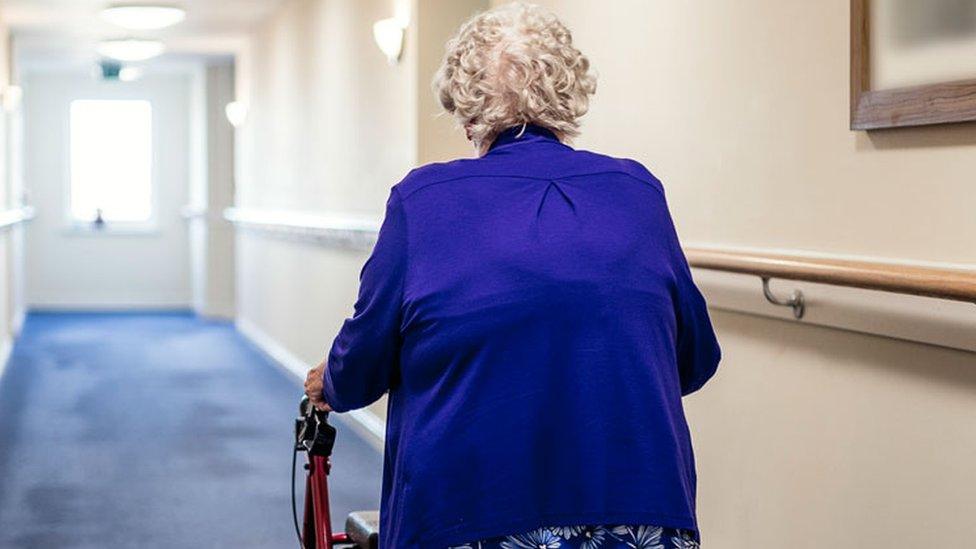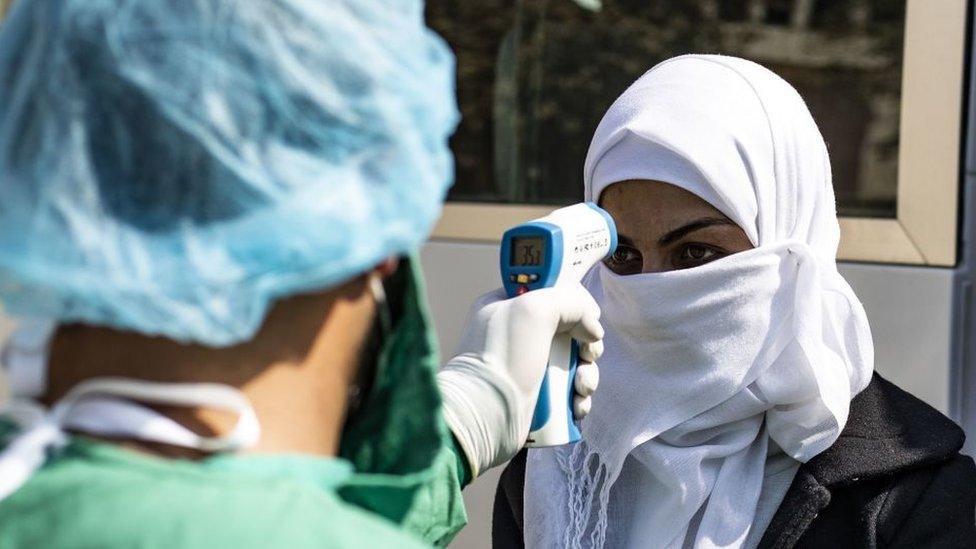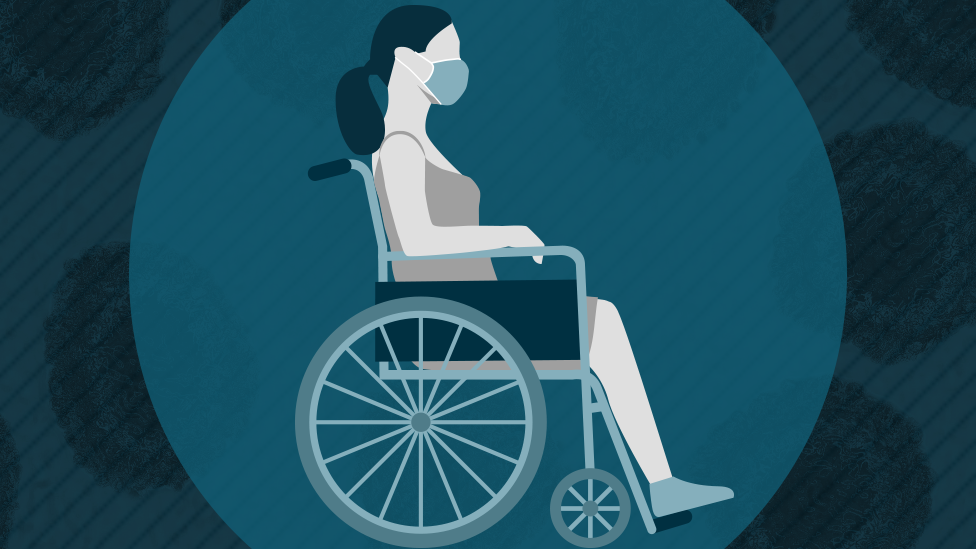Coronavirus: Millions more to be eligible for testing
- Published
- comments
"We'll be rolling out testing of asymptomatic residents and staff in care homes in England" - Matt Hancock
Millions more people are to be eligible for coronavirus tests, according to government announcements on Tuesday.
In England, all care home residents and staff will be able to access tests from Wednesday, regardless of whether they have symptoms.
People over 65 and those who must leave home to work, as well as those they live with, will be able to get tested if they have symptoms of Covid-19.
Scotland, Wales and Northern Ireland are expected to follow suit.
It comes after figures revealed a third of all coronavirus deaths in England and Wales are now happening in care homes.
Speaking at the daily coronavirus briefing, Health Secretary Matt Hancock said: "From construction workers to emergency plumbers, from research scientists to those in manufacturing, the expansion of access to testing will protect the most vulnerable and help keep people safe."
Anyone eligible can book a test on the government's test-booking website, external.
Last week, it closed temporarily following "exceptional demand" when key workers were first able to register.

A SIMPLE GUIDE: How do I protect myself?
AVOIDING CONTACT: The rules on self-isolation and exercise
IMMUNITY: Can you catch the virus twice?
HOPE AND LOSS: Your coronavirus stories
LOOK-UP TOOL: Check cases in your area

Mr Hancock also announced that a small number of hospitals in England will begin testing all patients for coronavirus, regardless of if they are showing symptoms, as part of a pilot.
The government has pledged to carry out 100,000 tests a day by the end of April, but the latest figures showed just over 43,000 tests took place across the UK on Monday - less than half its goal.
The health secretary said daily testing capacity had increased to 73,400 and insisted the UK was "on track" to hit 100,000 tests a day by Thursday.

'Massive expansion in testing'

This represents a massive expansion of who is eligible for testing - and means we are now one step away from allowing everyone to access a test if they have symptoms.
That will be crucial when lockdown restrictions are eased as part of the "test, track and trace" strategy to keep coronavirus at bay.
It is being made possible by the roll-out of home-testing kits and mobile units staffed by the armed forces.
The problems experienced getting more people tested have - to some extent - been because the network of drive-through testing centres have not always been in convenient locations.
There is plenty of lab capacity to process the tests now the three mega labs are up-and-running in Milton Keynes, Glasgow and Cheshire.
The expansion has also allowed the government to do something that could prove crucial in tackling the epidemic in care homes - the testing of residents and staff without symptoms.
A big concern is that the virus has been able to get a foothold in care homes via people transmitting it before they develop symptoms or if they are asymptomatic.
But promising something is one thing - delivering it is another.
While the capacity looks like it will be there to test 100,000 a day by the end of the month, the numbers actually getting tested are currently less than half that.

Meanwhile, in Scotland, First Minister Nicola Sturgeon said all patients over 70 who are admitted to hospital for any reason will now be tested for Covid-19.
In Northern Ireland, testing has begun in some GP practices and will also be expanded in hospitals and care homes. Wales has adopted a needs-based approach to testing for NHS and "critical" non-NHS workers.
Office for National Statistics data showed there were 2,000 coronavirus care home deaths in England and Wales in the week ending 17 April, double the previous week.
It brings the total number of deaths in care homes linked to the virus since the start of the pandemic to 3,096.
Coronavirus deaths in hospitals across the UK, have reached 21,678 - a rise of 586 from Monday.
The health secretary said from Wednesday the government will publish daily figures on deaths in care homes and the community.
He said the change aimed to "bring as much transparency as possible" to the figures and "add to our understanding of how this virus is spreading day by day".
In other developments:
British Airways said it was set to cut up to 12,000 jobs from its 42,000-strong workforce due to a collapse in business because of the pandemic
The first version of a coronavirus contact-tracing app that might help the UK emerge from lockdown could be ready in a fortnight's time, an NHS chief has said
People across the UK, including Prime Minister Boris Johnson, held a minute's silence to remember health and care workers who have died with coronavirus
Scotland's First Minister Nicola Sturgeon said face coverings would be recommended for the public in enclosed spaces such as supermarkets
Two brothers with coronavirus have died within hours of one another
Black, Asian and minority ethnic staff who may need face masks or tests for Covid-19 are being prioritised by an NHS trust
- Published28 April 2020

- Published28 April 2020

- Published28 April 2020

- Published16 March 2022

- Published1 May 2020

- Published5 July 2023

- Published5 July 2022
